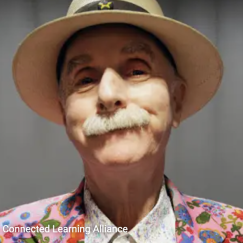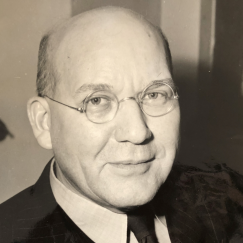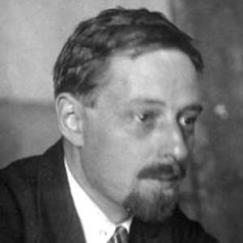Remember that values questions have a “you” in them. The goal is to involve people in relating what they see on the screen to their own lives, not to analyze the filmmaker’s technique or to engage in intellectual criticism. Allow the conversation to flow along a values and feelings track.
Bio/Short Description
Vladimir Yakovlevich Propp (1895 – 1970) was a Soviet folklorist and scholar who analyzed the basic structural elements of Russian folk tales to identify their simplest irreducible structural units. His research on fairy-tales achieved world recognition as the first application of structuralism to the humanities and created the foundation for new disciplines, such as narratology, semiology and structural anthropology. Umberto Eco considers that “Saussure + Lévi-Strauss + Hjelmslev + Propp drawn up the method, which tried to be integral one, that is know as structuralism”. (Eco, p. 348). Successors such as Roland Barthes, A. J. Greimas and Claude Lévi-Strauss tried to spread this method to address symbolic expression as a form of culture.
Other Grandparents
 ColinPosted By: Renee HobbsOn:07/13/2025 - 00:50
ColinPosted By: Renee HobbsOn:07/13/2025 - 00:50
 BillPosted By: Renee HobbsOn:06/29/2025 - 20:45
BillPosted By: Renee HobbsOn:06/29/2025 - 20:45
 HowardPosted By: Renee HobbsOn:01/27/2024 - 22:47
HowardPosted By: Renee HobbsOn:01/27/2024 - 22:47
 Gary Posted By: Renee HobbsOn:01/01/2024 - 00:39
Gary Posted By: Renee HobbsOn:01/01/2024 - 00:39
 Clyde Posted By: Renee HobbsOn:04/04/2023 - 18:16
Clyde Posted By: Renee HobbsOn:04/04/2023 - 18:16



Renee Hobbs
Reading Propp helped me understand that conflict is essential to storytelling. Propp used the term villain to describe one of the key characters in stories, but he emphasized that a villain is not necessarily “bad” or “evil.” In many stories, it is not really about the character or personality of the villain, he pointed out. The villain simply has to oppose the hero. The villain’s primary function is to serve as antagonist and be a source of conflict for the hero. The same is true for heroes: they do not have to be good, and in fact they usually have many flaws. The main job of the hero is to struggle against an adversary toward a resolution. This idea has had a lot of value in my relationships with people -- as I check myself when I may want to blame the "bad guy" in a particular situation.